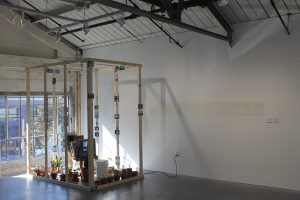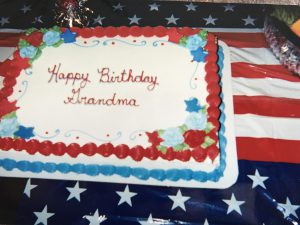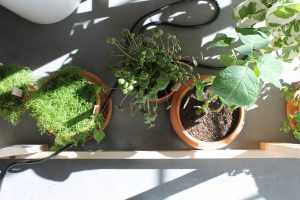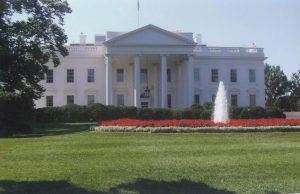‘Common Ground: To make room for another is why we grow in different directions’ | San Francisco, California
EAS contributor Jamie Turner writes about her California College of the Arts Master Thesis project and installation, which investigate the role of empathy and affection in politics (at the Minnesota Street Projects in San Francisco).
My art practice is both a reflection and mockery of my deepest dissatisfaction and confusion with American politics in relation to my familial dysfunction and the political personas which make up an American Midwest family.
I am a visual and social practice artist investigating the role of empathy and affection in politics. Through a research-based practice, I use interview, intervention, and discussion to reveal the commonality between contemporary global and familial crisis, often times focusing on political polarization in relation to how we as family members and citizens, differently process and reflect on personal and cultural memory.

I do this by exploring the capacity conversation has for collective understanding. I am committed to understanding familial and societal interactions through the gathering, governing, and facilitation of democracy both inside and outside of the home. I'm just a woman trying to understand what in the world is going on by using materials, people, relationships, all intimate to me, as surrogates in order to navigate how societal structures do or don’t operate.
In understanding current political circumstances, I have found it useful to utilize surrogates for how I process information which, at times, seem outside of my comprehension. The way my country, the United States of America, operates is one of the subjects in which I have found surrogacy to be useful. My family is another. Initially in this exploration, I replaced political figures with members of my family in an attempt to understand officiant roles. My president, my mother. My VP, my father. My speaker, my cousin, and so on. I figured if I could understand the intimacy, confusion, and dysfunction of an American family residing in the Midwest, then I could understand, at least somewhat better, the dysfunction of my country.

This practice of studying my own domestic narrative aided itself to understanding the origins of American politics. In 2019, our current governmental structure embodies chaos, and to navigate compromise requires me to be patient, devout, and not only willing but eager to understand the parts I disagree with. The further into this practice I went, the more out of control I felt. As I investigated my home, the more familial confusion I encountered. This is authentically my America, as it’s all familiar and also familial. As our founding fathers did, we send our sons and daughters to war, we believe in homeland security, and refer to our country as our own backyard.
As this practice progressed and I explored my country and my family, the more I craved to understand growth--how we grow, why we grow--nature versus care. Seeds became my surrogate.
I planted a seed for America. I spoke to it and developed a lexicon for what helped and hindered this seed's growth, my country's growth. I spoke to my president, my country, my country's conflicts, my mother, my father, my brother, my grandmother, every member of my family, and to the parts of my world that I needed help with--all in the form of plants. My country, my trees, my air. My gravity and grounding. My mother, my country. My mother, my politics, the party I belong to.

As I planted from seeds, for my family, my country, my world, I spoke to them, communicating memory, hopes, disagreement and democracy. The way that they grew, the way that they strengthened, the way that they weakened were the ways that they spoke to me and how I understood what helped and hindered their growth.

One day I planted a seed for America. I planted red tulips, as my first memory of visiting the White House as a child was a front lawn in full bloom of red tulips. The America I planted failed to grow. One day I planted a seed for my aunt, in hopes of comprehending our relationship, her role in my life, her role in my world. As she hung in her soil, a seed planted in a hanging pot, coincidentally above the America that I planted, the water that fed her, flowed through her soil and unto the soil of my country, lying below in a pot on the ground. My America began to grow.
So I gardened. Though I may not know what I mean by soil, water, or light, it is a mirror of my reality as I can’t find my ground, situate myself in my sky, or gather what feels like enough water to wash and fill my being. I planted my memories, exchanged with my land, to displace what I felt as fear and trauma unto my own ground and outside of myself.

The house that I was raised in on Timberman Road had a concrete backyard, no grass. We lived in Grandview, just outside of the city. It was a beautiful home, old, on its path towards a contemporary fate. The backyard, one which I prized, we all prized, was paved in concrete, a hazard for us as children, a hazard for most living things. A chain link fence created a border between our domesticity and perimeter domains. Every spring, morning glories woke, taking refuge across the entirety of border. Distance was interrupted by shades of violet. All of this from a crack in our foundation. The foundation of our yard, the foundations of our world. This is beautiful. This is also hard.
My reality is not unique. I am more than confused by the way the world moves around me and through me. In this work and in life, I plant a seed for the things I cannot make sense of. I communicate with the seed and, through the care I give it, I gain a better understanding of what it needs from me. More time, more space, more air.
Jamie Turner is a visual and social practice artist and educator currently based in San Francisco, California. She received her MFA from California College of the Arts and her BFA from Columbus College of Art & Design. She is investigating the effectiveness of surrogacy in understanding topics difficult to comprehend, currently including American politics, world conflict, familial encounters, athleticism and victory. Turner's practice employs sculpture, videography, installation, writing, and encounter.
